Text
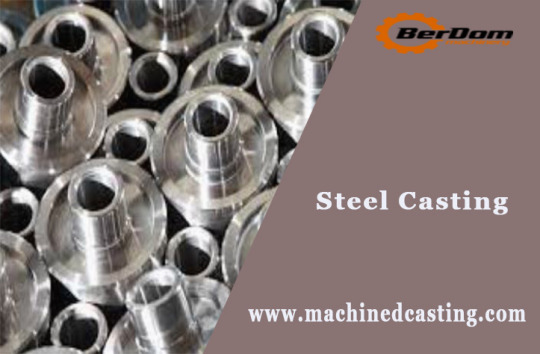
Unbreakable Strength: Steel Casting Excellence!
Discover the epitome of strength and durability with our exceptional steel casting services. 🏋️♂️🔩 From heavy machinery to critical industrial components, our precision-engineered steel castings deliver unmatched reliability and performance. 💪🏭 Backed by cutting-edge technology and a team of skilled artisans, we ensure that every steel casting meets the highest standards of quality. 💯 Embrace the power of steel in your projects and experience the difference it makes. Contact us now to elevate your manufacturing processes with our top-notch steel casting solutions. 🚀
0 notes
Text
Casting Industry Status
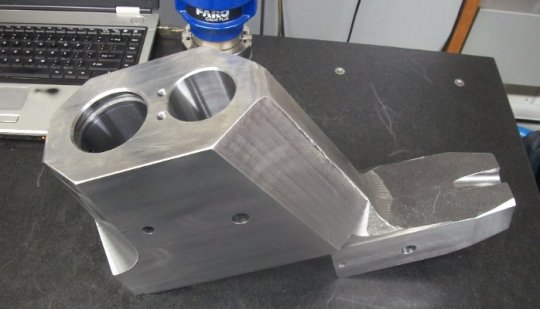
Casting Industry status. According to the “2013–2017 China’s iron and steel casting industry sales forecast and upgrade needs analysis report” statistics, in 2012 China’s total output of 42.5 million tons of various types of castings, compared with 2011 growth of 2.4 percent year on year, a sharp slowdown in growth .
0 notes
Text
Basic Knowledge Of Precision Casting
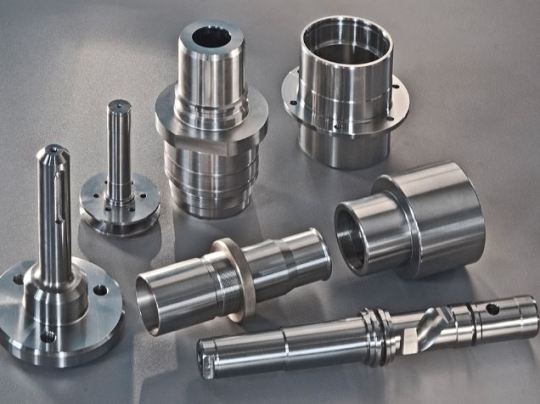
BD Machinery is a manufacturer of high performance Hobs for all types of automated welders. We also manufacture shafts and impellers for waterjet and plasma cutting applications as well as CNC machining parts, sand casting products, and machining parts.
0 notes
Text
Automotive Casting And Precision Casting In The Automotive Industry
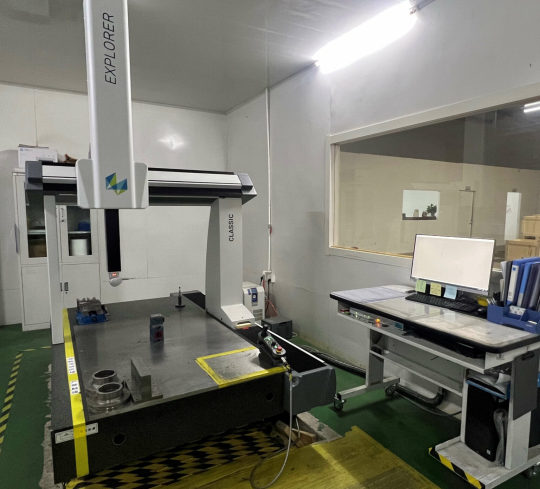
Automotive casting and Precision casting is critical in the automotive industry. The manufacturing process for vehicle parts is crucial for the end product’s performance and safety.
0 notes
Text
Enhancing Automotive Performance: The Role of Automotive Casting and Steel Machining by JiangSu KRT Industry
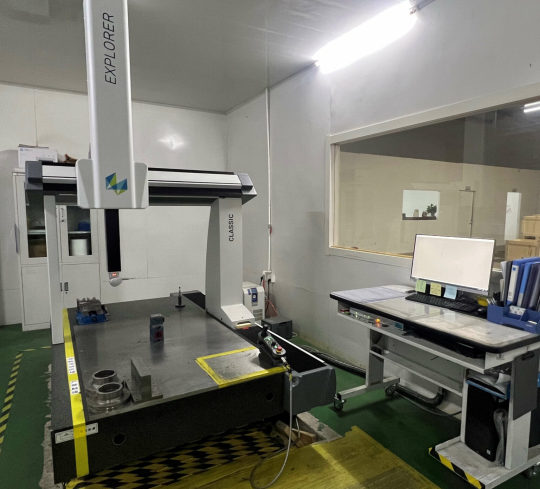
In the automotive industry, precision and durability are paramount. Two essential processes that significantly impact automotive performance are automotive casting and steel machining. In this blog, we will explore the significance of automotive casting and steel machining, and how JiangSu KRT Industry Co., Ltd's expertise in these areas can elevate your automotive components to new heights.
The Importance of Automotive Casting
Automotive casting is the process of creating complex automotive components by pouring molten metal into a carefully designed mold. This process is widely used in the automotive industry for manufacturing parts like engine blocks, cylinder heads, transmission cases, and more. Key points to consider are:
Design Precision: The intricate shapes and designs of automotive components demand a casting process that can faithfully reproduce every detail. Automotive casting ensures that even the most complex parts are accurately replicated, leading to optimal performance.
Material Choice: The choice of materials in automotive casting plays a crucial role in determining the component's strength, weight, and resistance to wear and corrosion. Advanced materials, such as aluminum and ductile iron, offer high-performance advantages, and JiangSu KRT Industry Co., Ltd excels in providing the best material choices for specific automotive applications.
Cost-Effectiveness: Automotive casting enables cost-effectiveness in large-scale production. With the right casting methods and a reputable supplier like JiangSu KRT Industry Co., Ltd, automotive manufacturers can enjoy the benefits of mass production without compromising on quality.
Steel Machining for Automotive Excellence
Steel machining is a vital process in the automotive industry that involves shaping and finishing steel components to precise specifications. It plays a significant role in achieving the following:
Tolerance and Accuracy: The automotive industry requires components with tight tolerances to ensure seamless assembly and optimal performance. Steel machining by JiangSu KRT Industry Co., Ltd guarantees the highest level of accuracy and consistency in every product.
Surface Finish: A smooth and flawless surface finish is critical for reducing friction, wear, and noise in automotive applications. With advanced machining techniques, JiangSu KRT Industry Co., Ltd can achieve superior surface finishes, enhancing overall vehicle performance.
Improved Strength: Steel is known for its strength and durability. Through precise machining processes, JiangSu KRT Industry Co., Ltd can further enhance the strength of steel components, ensuring they withstand the demanding conditions of the automotive environment.
JiangSu KRT Industry Co., Ltd: Elevating Automotive Performance
As a leading automotive casting and steel machining supplier, JiangSu KRT Industry Co., Ltd offers several advantages:
Expertise: With years of experience in automotive casting and steel machining, JiangSu KRT Industry Co., Ltd has amassed a wealth of knowledge and expertise to meet the industry's specific requirements.
Cutting-Edge Technology: Equipped with state-of-the-art machinery and advanced technology, JiangSu KRT Industry Co., Ltd can deliver automotive components that surpass expectations in terms of precision and quality.
Customization: The automotive industry is diverse, and so are its needs. JiangSu KRT Industry Co., Ltd understands this diversity and provides tailor-made solutions for your unique automotive applications.
Conclusion
Automotive casting and steel machining are integral to the success of the automotive industry. With JiangSu KRT Industry Co., Ltd as your partner, you can rest assured that your automotive components will embody the highest standards of precision, durability, and performance. Elevate your automotive creations today with the expertise of JiangSu KRT Industry Co., Ltd in automotive casting and steel machining. Visit our landing page to explore the full range of services and solutions we offer for the automotive industry.
0 notes
Text
Exploring Types of Cast Iron and Choosing the Right Casting Supplier for Your Manufacturing Needs
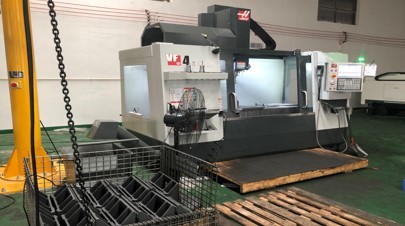
Casting is a crucial process in various industries, where molten metal is poured into a mold to create complex shapes and components. One of the essential aspects of successful casting manufacturing is choosing the right casting supplier. In this blog, we will delve into the different types of cast iron and how finding the ideal casting supplier, such as JiangSu KRT Industry Co., Ltd, can significantly impact the quality of your cast iron products.
Understanding Types of Cast Iron
Gray Cast Iron: Gray cast iron is the most commonly used type due to its excellent castability, good machinability, and low cost. It contains graphite flakes that provide lubrication during machining, making it suitable for applications like engine blocks, pipes, and cookware.
White Cast Iron: This type of cast iron is formed by rapid cooling, resulting in cementite formation instead of graphite. White cast iron is incredibly hard and brittle, making it ideal for applications requiring wear resistance, like crushing machinery.
Ductile Cast Iron (Nodular Iron): Ductile cast iron contains small amounts of magnesium, which alters the graphite structure, giving it improved ductility and toughness. It is used in applications where strength and shock resistance are essential, such as automotive components and heavy machinery.
Malleable Cast Iron: Malleable cast iron is created by annealing white cast iron, transforming the hard carbide into irregular-shaped graphite particles. It is highly ductile and can be bent and shaped without fracturing, making it suitable for applications like pipe fittings and handrails.
Compacted Graphite Iron (CGI): CGI has characteristics that lie between gray and ductile cast iron. It contains vermicular graphite structures, providing higher strength and thermal conductivity than gray cast iron. It finds applications in engine blocks and cylinder heads.
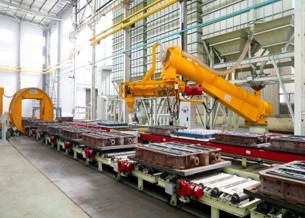
Importance of Choosing the Right Casting Supplier
Selecting the right casting supplier is critical for the success of your manufacturing endeavors. JiangSu KRT Industry Co., Ltd, as a reputable casting supplier, offers the following advantages:
Expertise and Experience: With years of experience in the industry, JiangSu KRT Industry Co., Ltd understands the nuances of different casting processes and materials, ensuring top-notch results for your cast iron components.
Quality Assurance: Reliable casting suppliers adhere to stringent quality control measures. JiangSu KRT Industry Co., Ltd takes pride in producing cast iron products that meet industry standards and your specific requirements.
Advanced Technology: Established casting suppliers utilize state-of-the-art technology and modern machinery to optimize the casting process, resulting in precise and consistent cast iron products.
Customization: Each industry may require unique cast iron components. JiangSu KRT Industry Co., Ltd works closely with clients to provide tailored solutions, meeting the diverse needs of various applications.
Timely Delivery: Meeting project deadlines is crucial in any manufacturing process. JiangSu KRT Industry Co., Ltd values punctuality and ensures on-time delivery of your cast iron components.
Conclusion
The choice of cast iron type plays a significant role in determining the success of your manufacturing applications. Understanding the properties and applications of different cast iron types empowers you to make informed decisions. Additionally, partnering with a reliable casting supplier like JiangSu KRT Industry Co., Ltd can streamline your manufacturing process, ensuring top-quality cast iron products that meet your requirements. So, whether you need gray cast iron for cookware or ductile cast iron for heavy machinery, make the right choice to boost the performance and durability of your products.
0 notes
Text
Exploring the World of Casting Industries and Products with JiangSu KRT Industry
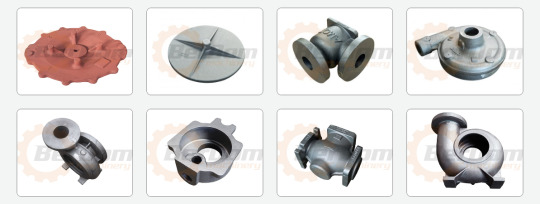
Casting is a crucial process in various industries, enabling the production of intricate and precise components. As a casting manufacturer, JiangSu KRT Industry has established itself as a trusted name in the field, delivering high-quality casting products. In this blog, we will dive into the world of casting industries, explore the role of casting manufacturers, and highlight the contributions of JiangSu KRT Industry.
Casting Industries: Versatility and Application: Casting finds applications across a wide range of industries, offering versatility and adaptability to meet diverse manufacturing needs. Some prominent industries benefiting from casting include:
Automotive Industry: Casting plays a vital role in manufacturing engine components, transmission parts, suspension components, and other critical automotive parts. The ability to create complex shapes and maintain precise tolerances makes casting indispensable in the automotive sector.
Aerospace and Defense: The aerospace and defense industries rely on casting for the production of turbine blades, aircraft structural components, missile casings, and more. Casting enables the creation of lightweight, high-strength components that can withstand extreme conditions.
Energy and Power Generation: Casting is instrumental in the energy sector, supporting power generation processes such as wind turbines, hydroelectric turbines, and gas turbine components. Casting's ability to create large and intricate parts ensures efficient energy production.
Industrial Machinery: Casting is widely used in the manufacturing of industrial machinery, including pumps, valves, gears, and machine tool components. Casting allows for the production of robust and precise parts that meet the demands of heavy-duty applications.
The Role of Casting Manufacturers: Casting manufacturers like JiangSu KRT Industry play a vital role in bringing casting projects to life. They possess the expertise, infrastructure, and technical know-how to transform design concepts into high-quality casting products. Key responsibilities of casting manufacturers include:
Material Selection: Casting manufacturers guide their clients in choosing the appropriate materials based on the application, considering factors such as strength, durability, and heat resistance.
Prototyping and Tooling: Casting manufacturers work closely with their clients to develop prototypes and create the necessary molds and tooling. This stage ensures that the final casting products meet the desired specifications.
Precision Casting: Casting manufacturers employ advanced techniques such as precision casting to achieve intricate shapes and maintain tight tolerances. This ensures the production of accurate and reliable casting products.
JiangSu KRT Industry: Delivering Quality Casting Products: JiangSu KRT Industry has established itself as a reputable casting manufacturer, delivering high-quality casting products across various industries. Their expertise, state-of-the-art facilities, and commitment to excellence have earned them a strong reputation.
With a focus on precision and quality control, JiangSu KRT Industry ensures that each casting product meets the highest industry standards. They offer a wide range of casting products, including components for automotive, aerospace, energy, and industrial machinery applications.
Conclusion: Casting industries play a vital role in the manufacturing landscape, providing the necessary components for various sectors. As a trusted casting manufacturer, JiangSu KRT Industry excels in delivering high-quality casting products that meet the demands of diverse industries. Their commitment to precision, expertise, and customer satisfaction makes them a reliable partner for businesses seeking top-notch casting solutions.
0 notes
Text
Enhancing Automotive Casting and Steel Machining with Precision Casting by JiangSu KRT Industry
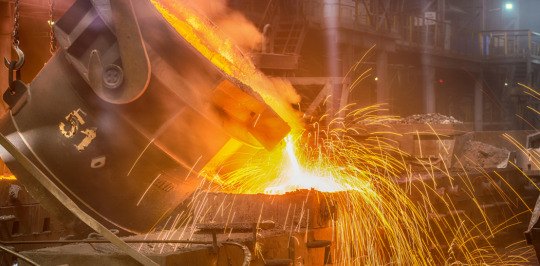
In the ever-evolving automotive industry, precision and quality are paramount. From critical engine components to intricate body parts, the manufacturing processes involved require expertise and advanced techniques. One company that excels in providing automotive casting and steel machining solutions with precision is JiangSu KRT Industry Co., Ltd. In this blog, we will explore the significance of precision casting in the automotive sector and delve into how JiangSu KRT Industry Co., Ltd delivers exceptional results.
Precision Casting in Automotive Manufacturing: Precision casting, also known as investment casting, is a manufacturing process that produces high-precision components with excellent surface finish and dimensional accuracy. In the automotive industry, precision casting plays a crucial role in creating complex parts that meet strict performance and safety requirements.
Automotive Casting Applications:
Engine Components: Precision casting is used to manufacture critical engine parts such as cylinder heads, pistons, crankshafts, and turbocharger components. These components demand exceptional precision and durability to withstand high temperatures, pressures, and mechanical stresses.
Transmission Systems: Precision casting contributes to the production of transmission housings, gears, and shafts. These components require precise tolerances and excellent strength to ensure smooth and efficient power transmission.
Suspension and Chassis Parts: Precision casting is utilized for manufacturing suspension components, including control arms, knuckles, and brackets. These parts must exhibit high strength, low weight, and excellent dimensional accuracy to ensure stability and safety on the road.
Steel Machining in Automotive Manufacturing: Steel machining is a vital process in the automotive industry that involves shaping and refining steel components to meet specific design and performance requirements. From turning and milling to drilling and grinding, steel machining ensures the precise shaping and finishing of automotive parts.
Applications of Steel Machining in the Automotive Industry:
Structural Components: Steel machining is used to fabricate structural components like frame members, cross members, and reinforcement parts. These components provide the necessary strength and rigidity to ensure the safety and structural integrity of the vehicle.
Steering and Brake Systems: Precision machining is essential in producing steering system components, such as steering knuckles and steering columns, as well as brake system components, including calipers, rotors, and drums. These parts require precise dimensions and smooth surface finishes to ensure optimal performance and safety.
JiangSu KRT Industry Co., Ltd: Delivering Excellence in Precision Casting and Steel Machining: JiangSu KRT Industry Co., Ltd is a trusted provider of precision casting and steel machining solutions for the automotive industry. With their extensive expertise and state-of-the-art facilities, they deliver high-quality components that meet the demanding standards of the automotive sector.
Their commitment to precision and quality is evident in their advanced casting techniques, rigorous quality control measures, and skilled workforce. JiangSu KRT Industry Co., Ltd ensures that each automotive casting and steel machining project is executed with meticulous attention to detail and adherence to specifications.
Conclusion: Precision casting and steel machining are integral to the production of high-quality automotive components. JiangSu KRT Industry Co., Ltd stands as a reliable partner, offering precision casting and steel machining solutions that meet the stringent requirements of the automotive industry. With their commitment to excellence, advanced manufacturing capabilities, and dedication to customer satisfaction, JiangSu KRT Industry Co., Ltd is well-equipped to deliver outstanding results in automotive casting and steel machining.
0 notes
Text
Exploring Casting Suppliers and Types of Cast Iron with JiangSu KRT Industry
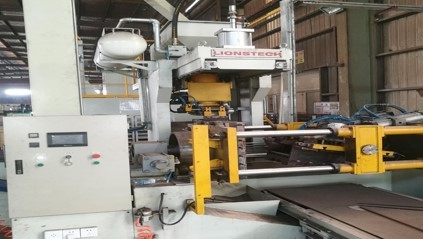
In the world of manufacturing, casting plays a vital role in creating various components and products. To ensure the quality and precision of castings, it is essential to partner with reliable casting suppliers who possess expertise and experience. One such notable name in the industry is JiangSu KRT Industry Co., Ltd. In this blog, we will delve into the significance of casting suppliers, explore different types of cast iron, and highlight the contributions of JiangSu KRT Industry Co., Ltd.
Casting Suppliers: A Crucial Element in Manufacturing Process: Casting suppliers are instrumental in transforming designs and concepts into tangible products. They provide the necessary expertise, facilities, and resources required for the manufacturing process. From initial design discussions to the final production stage, casting suppliers act as valuable collaborators, ensuring the efficient and successful creation of cast components.
Choosing the right casting supplier is crucial, as it directly impacts the quality, cost-effectiveness, and timeliness of the final product. Suppliers like JiangSu KRT Industry Co., Ltd understand the importance of precision and consistency in the casting process. They possess advanced manufacturing capabilities, a dedicated team of experts, and a commitment to delivering exceptional results.
Types of Cast Iron and Their Applications: Cast iron, known for its durability and versatility, is widely used in various industries due to its excellent heat resistance and mechanical properties. Let's explore some common types of cast iron:
Gray Cast Iron: Gray cast iron is the most commonly used type of cast iron. It is known for its excellent castability, high wear resistance, and good machinability. Gray cast iron finds applications in automotive components, pipes, cookware, and machine tool structures.
Ductile Cast Iron: Ductile cast iron, also known as nodular cast iron or spheroidal graphite iron, exhibits improved strength, toughness, and ductility compared to gray cast iron. It is commonly used in applications where high strength and shock resistance are required, such as crankshafts, gears, and heavy machinery components.
White Cast Iron: White cast iron is characterized by its hardness and brittleness. It contains high amounts of carbon, which makes it exceptionally hard but less ductile. White cast iron is primarily used in applications where abrasion resistance is crucial, such as grinding balls, mill liners, and crushing equipment.
Malleable Cast Iron: Malleable cast iron is a heat-treated form of white cast iron. It possesses improved ductility and toughness, making it suitable for applications that require deformation without breaking, such as pipe fittings, hand tools, and electrical fittings.
JiangSu KRT Industry Co., Ltd: A Trusted Casting Supplier: JiangSu KRT Industry Co., Ltd is a renowned casting supplier known for its commitment to quality, advanced manufacturing capabilities, and customer-centric approach. With years of experience in the industry, they have developed a strong reputation for delivering precision-crafted castings that meet the highest standards.
Their state-of-the-art facilities, cutting-edge technology, and skilled workforce enable them to handle a wide range of casting manufacturing requirements. Whether it's gray cast iron, ductile cast iron, or other materials, JiangSu KRT Industry Co., Ltd ensures that each casting is meticulously produced to meet the specific needs of their clients.
Conclusion: Partnering with a reliable casting supplier is vital for the success of any manufacturing project. The choice of a supplier can greatly impact the quality, cost, and timeliness of the final product. JiangSu KRT Industry Co., Ltd, with its expertise in casting manufacturing, commitment to quality, and broad range of capabilities, stands as an excellent choice for businesses seeking reliable casting solutions. Whether you require gray cast iron, ductile cast iron, or any other type of cast iron component, JiangSu KRT Industry Co., Ltd is dedicated to delivering exceptional results and exceeding customer expectations.
0 notes
Text
Iron-Casting-Plant
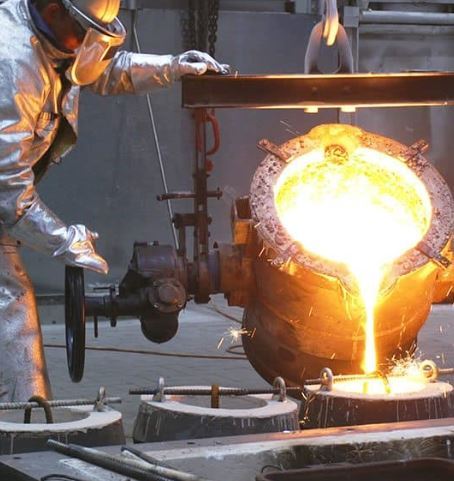
Because it is feasible to utilize an existing item as a blueprint for a one-off production, green sand casting is typically regarded as the simplest casting technology. But it’s also employed in a few high-volume applications.
The main advantage of this method is that sand can be readily recycled while producing little odor and little environmental damage.
Read more:https://www.machinedcasting.com/iron-casting-plant/
0 notes
Text
CNC Machining BD-machinery
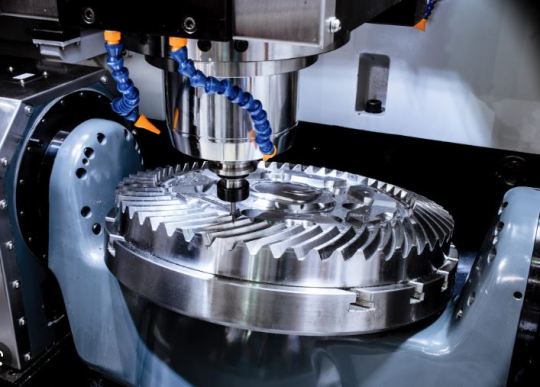
The term “CNC” stands for “computer numerical control,” and according to the definition of CNC machining, it is an additive and subtractive process that typically uses computerized controls as well as machine tools to delete material layers from a stock piece, also known as the “blank” or “workpiece,” to create a custom-designed part.
Read More :https://www.machinedcasting.com/cnc-machining/
0 notes
Text
Ductile Iron Casting
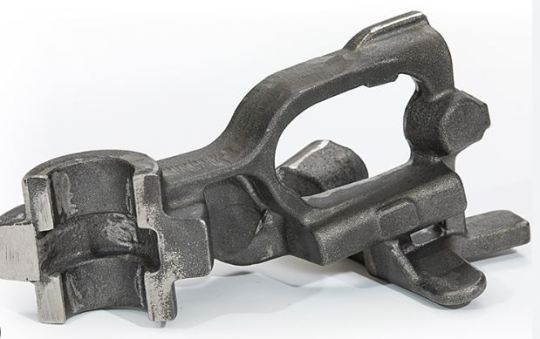
Essentially, Ductile Iron Casting is an alloy of iron and carbon. Cast iron has more carbon than 2%, on average.
Other significant elements, such as silicon, manganese, sulfur, phosphorus, and others, can be added to cast iron, significantly altering the alloy’s structure and characteristics, depending on the casting needs.
0 notes
Text
White Cast Iron: Unveiling the Strength and Versatility of White Iron Casting
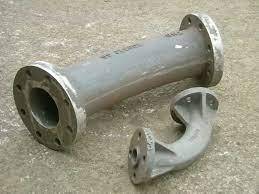
In the realm of cast iron, white cast iron stands out as a unique and remarkable material known for its exceptional hardness, wear resistance, and strength. Through the process of white iron casting, this specialized form of cast iron can be shaped into various components that require outstanding durability and abrasion resistance. In this blog post, we will delve into the world of white cast iron, exploring its characteristics, applications, and the intricacies of white iron casting. Join us as we uncover the hidden potential of this formidable material.
Understanding White Cast Iron: A Study in Hardness and Strength
White cast iron derives its name from its distinctive white appearance, which results from its microstructure predominantly composed of cementite (iron carbide). This unique microstructure gives white cast iron its exceptional hardness and brittleness, making it highly resistant to wear, abrasion, and impact. Let's explore some key characteristics of white cast iron:
Hardness: White cast irons is renowned for its exceptional hardness, often surpassing that of other cast iron types. This hardness is attributed to the presence of cementite, which provides excellent resistance against abrasive forces and deformation.
Wear Resistance: The hardness of white cast iron translates into remarkable wear resistance, making it ideal for applications where components are subjected to severe abrasion. Industries such as mining, cement production, and crushing machinery greatly benefit from the wear-resistant properties of white cast iron.
Brittle Nature: While white cast iron possesses superior hardness, it is inherently brittle due to its microstructure. This brittleness limits its application in situations where high impact loads or shock resistance are required.
Applications of White Cast Iron: Defying Wear and Tear
The exceptional hardness and wear resistance of white cast iron make it an ideal choice for applications that demand durability and resistance to abrasive forces. Here are some prominent applications where white cast iron shines:
Mining and Earthmoving Equipment: White cast iron finds extensive use in the mining industry, particularly in components such as crusher hammers, excavator teeth, and wear plates. These parts are subject to harsh conditions, including high-impact forces and abrasive materials, where the wear resistance of white cast iron is vital.
Cement and Power Plants: In cement production and power plants, white cast iron is commonly employed in components like grinding balls and liners for mills and crushers. These components endure continuous grinding and impact, requiring the exceptional wear resistance of white cast iron to maintain efficiency and longevity.
Pump Components: The excellent wear resistance of white cast iron makes it an ideal choice for pump components exposed to abrasive media, such as slurry pumps used in mining, dredging, and wastewater treatment. Impellers, casings, and wear rings made from white cast iron can withstand the rigors of continuous operation in abrasive environments.
White Iron Casting: Shaping Durability with Precision
White iron casting is the manufacturing process that transforms white cast iron into complex shapes and components suitable for various applications. The casting process involves:
Pattern and Mold Preparation: A pattern, typically made of wood or metal, is created based on the desired component's design. The pattern is used to make a mold, often formed from sand or other refractory materials.
Melting and Pouring: White cast iron, along with other alloying elements, is melted in a furnace to achieve the desired composition. The molten metal is then poured into the prepared mold, ensuring proper filling and solidification.
Cooling and Finishing: After pouring, the molten metal cools and solidifies inside the mold, adopting the shape of the component. Once cooled, the casting undergoes finishing processes, including grinding, machining, and surface treatments, to achieve the required dimensions and surface quality.
White cast iron, renowned for its exceptional hardness and wear resistance, offers unparalleled strength and durability in demanding applications. Through the process of white iron casting, this formidable material can be shaped into intricate components that withstand the harshest of conditions. From mining equipment to power plants and pump systems, the wear-resistant properties of white cast iron ensure longevity and performance. By harnessing the power of white cast iron and the precision of white iron casting, industries can rely on this extraordinary material to overcome the challenges of wear and tear, opening up new avenues of durability and reliability.
0 notes
Text
The Driving Force of Automotive Casting and the Precision of Steel Machining
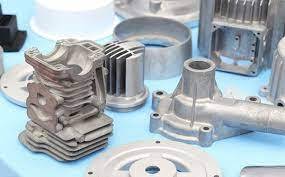
The automotive industry is constantly evolving, pushing the boundaries of innovation and performance. Two essential processes that contribute to the success of automotive manufacturing are automotive casting and steel machining. In this blog post, we will explore the significance of automotive casting in the production of critical automotive components, as well as the precision and versatility of steel machining in creating high-quality automotive parts. Let's embark on a journey to uncover the driving force behind automotive casting and the remarkable precision of steel machining.
Automotive Casting: Shaping the Future of Automobiles
Automotive casting plays a pivotal role in the production of various components that are integral to the performance and safety of automobiles. Through the casting process, molten metal is poured into molds to create complex shapes with intricate details. Let's delve into the significance of automotive casting and the components it helps manufacture:
Engine Blocks and Cylinder Heads: Engine blocks and cylinder heads are vital components that house the combustion chambers, pistons, and valves of an engine. These components require high strength, thermal stability, and precise machining. Automotive casting, particularly using materials like cast iron or aluminum alloys, allows for the creation of intricate designs and internal passages necessary for optimal engine performance.
Transmission Housings: Transmission housings provide protection and support to the intricate gears, clutches, and shafts of a vehicle's transmission system. The casting process enables the production of transmission housings with complex shapes and internal cavities, ensuring proper alignment and functionality of the transmission components.
Suspension Components: Suspension components, such as control arms, steering knuckles, and axle carriers, play a crucial role in providing stability, comfort, and handling characteristics to a vehicle. Automotive casting allows for the manufacturing of lightweight yet sturdy suspension components, enhancing overall performance and safety.
Brake Calipers and Discs: Brake calipers and discs are essential for the effective braking performance of a vehicle. Casting techniques enable the production of intricate and precisely machined brake calipers and discs, ensuring optimal heat dissipation, durability, and reliability during braking operations.
Steel Machining: Precision and Versatility at the Core
Steel machining is a precision manufacturing process that involves shaping and finishing steel components to meet the stringent requirements of the automotive industry. Here are some notable aspects of steel machining in automotive manufacturing:
CNC Machining: Computer Numerical Control (CNC) machining is widely employed in the automotive industry for its precision and repeatability. CNC machines use programmed instructions to precisely shape and machine steel components, resulting in high-quality parts with tight tolerances. This process allows for the creation of intricate designs, precise threading, and surface finishes required for various automotive applications.
Turning and Milling: Turning and milling operations are integral to steel machining. Turning involves rotating the workpiece against a cutting tool to create cylindrical or conical shapes, while milling employs rotary cutters to remove material and create complex shapes, slots, and grooves. These versatile machining techniques enable the production of engine shafts, gears, and other intricate steel components used in automotive systems.
Surface Finishing: Surface finishing processes such as grinding, polishing, and coating provide the final touches to steel automotive components. These processes improve the aesthetics, durability, and resistance to corrosion and wear of the parts, ensuring their longevity and performance.
Automotive casting and steel machining are two cornerstones of automotive manufacturing, driving the production of critical components that define the performance, safety, and reliability of automobiles. The precision and versatility of steel machining, combined with the intricate designs and complex shapes achievable through automotive casting, enable the creation of high-quality automotive parts. As the automotive industry continues to advance, the role of automotive casting and steel machining will remain instrumental in shaping the future of automobiles, paving the way for enhanced performance, efficiency, and innovation on the roads.
1 note
·
View note
Text
Unveiling the Power of Cast Iron: A Comprehensive Guide to Casting Suppliers, Types, and Manufacturing
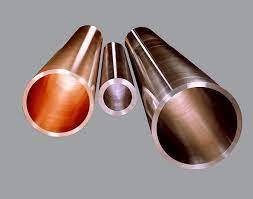
When it comes to manufacturing and engineering, cast iron holds a significant place due to its strength, durability, and versatility. From automotive components to architectural elements, cast iron has been a preferred choice for centuries. In this blog post, we will explore the world of cast iron, focusing on casting suppliers, the various types of cast iron, and the intricacies of the casting manufacturing process. So, let's dive in and discover the fascinating aspects of this remarkable material.
Casting Suppliers: The Backbone of Cast Iron Production
Before delving into the types of cast iron, it is essential to understand the critical role played by casting suppliers. These suppliers are the backbone of the cast iron industry, connecting manufacturers with the raw materials and expertise necessary for the casting process. Casting suppliers offer a wide range of services, including sourcing quality materials, providing technical assistance, and ensuring timely delivery. Collaborating with a reliable casting supplier is crucial for ensuring the production of high-quality cast iron products.
Types of Cast Iron: Unleashing Diversity and Strength
Cast iron comes in various types, each possessing distinct characteristics that make it suitable for specific applications. Let's explore some of the most common types of cast iron:
Gray Iron: Gray iron is the most widely used type of cast iron due to its excellent castability, good machinability, and exceptional damping capacity. It is named after its gray appearance resulting from the graphite flakes present in its microstructure. Gray iron finds applications in engine blocks, pipes, manhole covers, and brake discs.
Ductile Iron: Also known as nodular iron or spheroidal graphite iron, ductile iron exhibits improved strength, toughness, and ductility compared to gray iron. This is achieved by adding trace amounts of magnesium or cerium, which induce the formation of graphite nodules within the microstructure. Ductile iron is commonly used in components such as gears, crankshafts, and heavy machinery parts.
White Iron: White iron owes its name to its white, hard, and brittle nature. It contains cementite in its microstructure, which gives it its characteristic appearance. White iron offers exceptional wear resistance and is commonly used in applications where high abrasion resistance is required, such as in crushing machinery, grinding balls, and excavator teeth.
Malleable Iron: Malleable iron is produced by heat treating white iron, transforming it into a material that combines strength and malleability. It has good impact resistance and can be easily machined, making it suitable for applications such as pipe fittings, automotive parts, and hand tools.
Casting Manufacturing: From Design to Final Product
The casting manufacturing process involves several stages, each crucial for achieving the desired end product. Here is a simplified overview of the casting process:
Pattern Making: A pattern, typically made of wood or metal, is created based on the product's design. The pattern serves as a model for the mold.
Mold Making: The pattern is used to create a mold, usually made of sand or refractory material, into which the molten metal will be poured. The mold is divided into two halves, the cope and the drag, to allow for easy removal of the casted part.
Melting and Pouring: The desired metal, such as cast iron, is melted in a furnace and poured into the prepared mold.
Cooling and Solidification: After pouring, the molten metal cools and solidifies inside the mold, taking the shape of the desired product.
Shakeout and Finishing: Once the metal has solidified, the mold is broken, and the casting is removed. Excess material, such as gates and risers, is removed, and the casting undergoes finishing processes like grinding, machining, and surface treatment.
Cast iron continues to play a vital role in various industries, thanks to its exceptional properties and versatility. Understanding the types of cast iron, collaborating with reliable casting suppliers, and having a grasp of the casting manufacturing process are essential for producing high-quality cast iron products. Whether you're an engineer, manufacturer, or simply intrigued by the world of metalworking, exploring the depths of cast iron opens up a world of possibilities and innovation.
Incorporating cast iron into your projects can provide the strength, durability, and performance required for success. So, embrace the power of cast iron and unlock a realm of endless opportunities in the world of manufacturing.
0 notes
Text
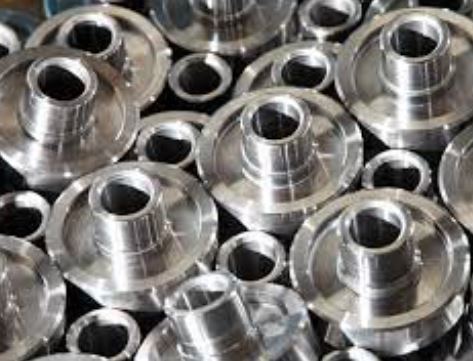
Steel Casting
Steel casting is a manufacturing process that involves pouring molten steel into a mold to create complex and durable components. Steel castings offer exceptional strength, toughness, and versatility, making them ideal for a wide range of applications in industries such as automotive, aerospace, construction, and machinery. With their high precision and reliability, steel castings play a critical role in modern manufacturing processes.
0 notes
Text
Bd machinery : Driving Excellence in Automotive Casting Manufacturing
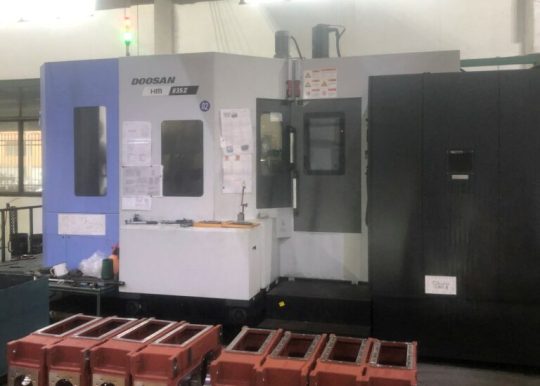
The automotive industry is constantly evolving, demanding high-performance components that meet stringent standards for quality, durability, and safety. Within this industry, automotive casting plays a pivotal role in the production of critical parts and components that contribute to the performance and reliability of vehicles. When it comes to automotive casting manufacturing, one name stands out as a trusted and reliable partner—JiangSu KRT Industry Co. Ltd (Bd machinery).
Bd machinery, a subsidiary of JiangSu KRT Industry Co. Ltd, has earned a reputation for excellence in the automotive casting sector. Their commitment to delivering top-quality automotive castings has made them a preferred choice for leading automotive manufacturers around the globe.
So, what sets JiangSu KRT Industry Co. Ltd (Bd machinery) apart when it comes to automotive casting manufacturing? Let's delve into the key factors that make them a trusted name in the industry.
Expertise in Automotive Casting: Bd machinery possesses extensive expertise in automotive casting manufacturing. Their team of skilled engineers and technicians are well-versed in the complexities of automotive component production. From engine parts and transmission components to suspension systems and structural elements, they have the knowledge and experience to deliver superior automotive castings.
Advanced Manufacturing Facilities: JiangSu KRT Industry Co. Ltd (Bd machinery) understands the importance of investing in advanced manufacturing facilities. Equipped with cutting-edge machinery and technologies, their production plants enable the precise and efficient production of automotive castings. They leverage the latest casting techniques, such as sand casting, investment casting, and die casting, to meet the specific requirements of their automotive clients.
Quality Assurance: Quality is a paramount focus at JiangSu KRT Industry Co. Ltd (Bd machinery). They adhere to stringent quality control measures throughout the automotive casting manufacturing process. From meticulous material selection to comprehensive inspections, every step is carefully monitored to ensure that the automotive castings meet the highest quality standards.
Customized Solutions: Recognizing that each automotive manufacturer has unique requirements, Bd machinery offers customized solutions tailored to specific needs. They work closely with their automotive clients to understand their design specifications, performance expectations, and budget constraints. By leveraging their expertise and flexibility, they deliver automotive castings that align with the precise requirements of their customers.
Commitment to Innovation: JiangSu KRT Industry Co. Ltd (Bd machinery) believes in continuous improvement and innovation. They stay abreast of the latest advancements in automotive casting manufacturing to ensure that they can deliver cutting-edge solutions to their clients. By embracing new technologies and industry best practices, they strive to exceed customer expectations and contribute to the advancement of the automotive industry.
When it comes to automotive casting manufacturing, JiangSu KRT Industry Co. Ltd (Bd machinery) is a trusted partner that embodies excellence, innovation, and reliability. With their expertise, advanced facilities, and commitment to quality, they are poised to meet the ever-evolving needs of the automotive industry.
Choose JiangSu KRT Industry Co. Ltd (Bd machinery) for your automotive casting requirements and experience the difference that their top-quality automotive castings can make in enhancing the performance and durability of your vehicles.
0 notes